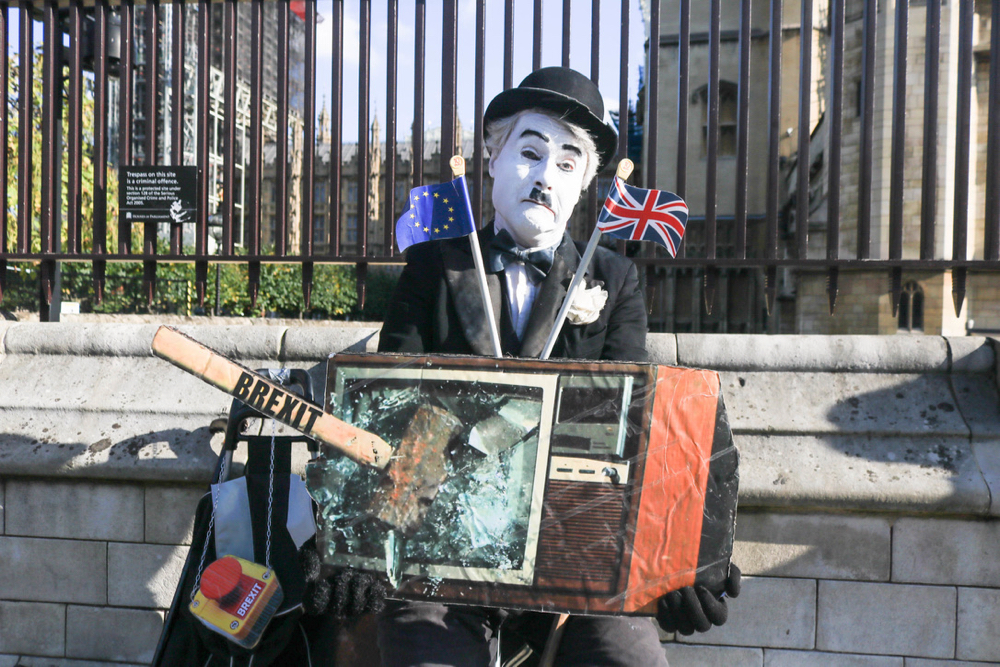There is an argument that Jeremy Corbyn, just by being who he is and where he is, is the single biggest reason why the United Kingdom may leave the European Union. The leader of the Labour Party is therefore Boris Johnson's greatest ally, though he doesn't know it. A Labour party led by someone acceptable to the public at large as a possible prime minister could be treading on Mr Johnson's heels in the opinion polls, or even ahead. And if he (or she) were an articulate and rational advocate for a "people's vote" on Brexit – the preferred voter-friendly name for a second referendum – the chances of Britain ever leaving the EU would diminish substantially. While the opposite would happen to the chances of Labour, led, say, by Sir Keir Starmer, forming the next Government.
Boris won by a majority of 30 when his EU Withdrawal Bill was put to Parliament on Tuesday for its second reading, which is the very first time in the entire Brexit saga that the House of Commons has approved the general principle of Britain leaving. It is true some of the Labor MPs who voted for it wanted to see the Bill substantially amended before they saw it passed into law, and the direction in which they wanted it moved as likely to put a strain in the loyalty of the Tory right wing.
These Labour MPs want statutory protection to make sure workers' rights and environmental standards never fall below those in the EU after Britain leaves, if and when it does. The absence of that statutory protection, on the other hand, is the reason why the Tory right wing, the so-called Brexit "Spartans", have been able to swallow their misgivings and support the Bill as it stands. If the Government tries to woo Labour MPs in pro-Brexit constituencies by granting those amendments to the Bill, as Boris Johnson virtually promised to do in the debate, he risks losing the support of the ERG. The passage of the Bill onto the statute book would then look highly problematical. So the tension in the ranks of those MPs who supported the Bill's second reading is between those who want more regulation and those who want less. The same tension exists inside the Cabinet itself.
Even greater difficulties lie ahead regarding Britain's membership of the EU customs union. The withdrawal Bill would end that, leaving Britain free to strike trade deals with whatever countries it wanted but also withdrawing Britain from participation on trade deals the EU has already struck. The Tory right, again the ERG in the lead, have a firm conviction that those independent deals will make Britain richer. A few economists, for instance Professor Patrick Minford of Cardiff University, agree. Most do not, nor does the Treasury.
When the Commons was asked to support British membership of the Customs Union, the proposal was defeated by only three votes, with both the Scottish Nationalists and the Liberal Democrats abstaining. Where they to support it, the odds are that it would easily pass, even though a large number of Tory MPs would still oppose it.
Independent free trade deals are seen by some as an economic magic wand to boost the economy, but the real force behind them is the notion of independence per se, taking back control and not letting "foreigners", for instance the allegedly faceless bureaucrats of Brussels, dictate Britain's trading terms. The fact is however that no nation trades with another purely on its own terms. They have to be agreed by both sides. It is also true that having left international trade negotiations to be conducted by Brussels on behalf of the whole EU, Britain has lost the expertise and experience needed to do so by itself alone. And these negotiations are highly specialised activities, taking a great deal of time and skill.
So Mr Johnson's EU deal by the end of the process may look very different from the one he took to Parliament this week. Would he agree to EU customs union membership as the price he would have to pay to keep his majority intact, or would he abort the process rather than accept that?
And when is all this going to happen? It is not at all clear at the time of writing whether the Bill will go forward for further debate and possible amendment, or whether the Government priority is now to seek a general election, with EU withdrawal business unfinished. Mr Johnson is caught in a trap. Whatever direction he decides to go in, now, has its own perils.
He cannot bring about an election without Labour's support because he does not have the votes in Parliament. Labour is shy of a general election, meanwhile, because it does not have the votes in the country at large. It is currently trailing the Tories by about ten per cent.
All these calculations would change if Labour was led by someone the public could imagine in 10 Downing Street rather than someone whose unpopularity with the public is below the bottom of the scale. And if that person were an unequivocal Remainer, he could be expected to head off Brexit altogether.



 Loading ...
Loading ...
What do you think?
You can post as a subscriber user ...
User comments (0)